The Saturday Read: A furious year
Inside: 7 October, Lebanon, Kaplan, Vance, Green Day, Boris Johnson, Tanya Gold on Dahl, and Patriot (revisited).
Good morning. Welcome to the Saturday Read, the New Statesman’s guide to politics, culture, books, and ideas. This is Jason, together with Finn, Nicholas, Pippa and George.
Most of us will recall where we were and what we were doing on the morning of 7 October 2023 when we heard that Hamas militants had broken out of Gaza and had embarked on a murderous rampage in southern Israel. Raw footage of the horrifying attacks – some of the militants were wearing body cameras – was soon circulating on social media as Israelis attempted to come to terms with what had happened inside their country and why the military response had been so slow. Yahya Sinwar, the leader of Hamas in Gaza, still at large in the devastated Strip, must have known exactly how Israel would respond to the attacks, pitilessly and with unrelenting military power.
Nearly a year later and Israel is now fighting a multi-dimensional war on multiple fronts and has invaded Lebanon for the fourth time in 50 years, having already assassinated the senior leadership of Hezbollah, the Iran-backed Shia group that was formed in 1982 during what the Israelis call the first Lebanon war. An even more serious confrontation with Iran now looms. And there has been blowback in Europe – bitter sectarian conflict, street protests, intra-political party division – and anti-Semitism has surged.
This week’s magazine is a special issue reflecting on the events of 7 October and the year of war, destruction and bloodshed that has followed in the Middle East. As Robert D Kaplan writes in our cover story, what struck Israel on 7 October was an “event so dramatic and so bestial that it will be remembered like 9/11: a date so infamous that it becomes a concept”. And yet, he says, Israel has suffered a strategic defeat and the Netanyahu government has no postwar plan for the governance of the occupied territories.
In March I visited Israel and the West Bank and had several conversations with high-ranking Israeli government ministers as well as with representatives from the Palestinian Authority. I returned home convinced more than ever that there is no pathway to a two-state solution. People have been hardened by war and suffering. The mutual hatred and distrust are too deep.
Vladimir Jabotinsky, an Odesa-born writer and militant Zionist revisionist, such an influence on the young Menachem Begin, who became the first Likud prime minister of Israel, having drawn great support from the Jews of Middle East and North African heritage, spoke of the need for an “iron wall” to be erected between Jews and Arabs. As we approach the anniversary of 7 October, that wall has never seemed so high or so impenetrable.
The picks…
Good morning, Finn here. Alongside our extensive coverage of the Middle East, we hear from Freddie and Sohrab in the US; Leo Robson stares into Boris Johnson’s soul; and Clive Martin checks on the anti-lockdown protest movement – which is still alive and kicking in 2024, for some reason. As ever, have a great week and thanks for reading.
1—“The pace of history is now furious.”
Kaplan argues the Middle East will only see long-term peace with regime change in Iran – from within or without.
As Jason says above, this piece was part of our print special this week on the anniversary of 7 October and its aftermath. It also featured: Megan Gibson’s interview with Sharone Lifschitz (whose parents were seized by Hamas a year ago on Monday); Andrew Marr on Israel’s long history; Chief Rabbi Ephraim Mirvis’s essay on Zionism; and Atef Abu Saif on the destruction of Gaza. NH
Energy-rich Iran provides the money, the military training, the brilliant tactics and the dynamic ideology of revolutionary nihilism (which combines a radical Islam with an anti-Semitic fascism) that has allowed Hamas and Hezbollah to become what they are today. The older Arab-Israeli conflict over historical Palestine was a conventional contest over states and territory. But the introduction of clerical Iran has given the struggle a “tiers-mondiste” quality, further infused with a millenarian religious call for the annihilation of an entire people… With Israelis and Palestinians doomed to conflict, the only way Israel can possibly gain a strategic victory is if there’s a domestic change inside Iran.
2—“There is no Catholic vote, and it’s important.”
The US is still very much a religious country, Sohrab writes. And as Kamala Harris is gunning to be the centrist candidate – with a tough approach to crime and immigration – she should be shaking hands with people of faith. Without it she risks missing out on that ephemeral, disperse and crucial Catholic vote. FMcR
The split, now a fixture of American political life, has to do with the fact that the Catholic world-view doesn’t line up neatly with either of the two party’s platforms. Catholics are concerned with social-justice issues typically associated with the left and with life-and-family issues that have been domain of the right. Thus, as Dionne wrote, “being a Catholic liberal or a Catholic conservative inevitably means having a bad conscience about something”.
3—“Like an electric current!”
How to follow a decade of songs about “girls, weed and bodily functions”? Why, to mobilise America’s youth against George W Bush of course! The fun of Green Day’s American Idiot can blind us to its significance. Pippa, expert on all things Armstrong-Dirnt-Cool, leads us to new comprehensions of long-loved music. GM
More than 5,000 miles from Green Day’s home town of Oakland, California, at an all-girls school in south-west London, “American Idiot” coursed through my class like an electric current. One friend wore an “American Idiot” pin-badge on her training bra; another box-dyed her hair “Billie Joe black” in tribute to the band’s frontman Billie Joe Armstrong. Several had numbers scrawled in Biro on the backs of their hands, a day-by-day countdown to the summer of 2005, when Green Day would play at the Milton Keynes National Bowl.
4—“We’re gonna be free to disagree!”
The severity and delirium of the pandemic radicalised many otherwise quiescent citizens against a government they no longer trusted. Where has that political energy gone since Covid? Clive Martin attended a rally for “Together”, originally an anti-lockdown protest group, to find out. NH
Covid, which provided the organising impetus behind this supergroup, is gone. In what other context could you have brought together such a bizarre mixture of broadsheet columnists and pop-cultural footnotes, tabloid hacks and minor politicians? It must be said, however, that the Establishment keeps giving them reasons to reunite. Because while the government may not be the cartoon villain Together think it is, there are opaque organisations trying to change the world we live in, the cars we drive, and how we run our businesses. And Britain has taken on a more joyless, authoritarian, law ’n’ order streak since Starmer’s election, with heavy sentences dished out to rioters, and all sorts of rumours about smokeless pub gardens, increases in alcohol duty, and other classic nanny-state scare stories floating in the ether… Lockdown may be over, but the fuse that it lit still burns.
To enjoy our latest analysis of politics, news and events, in addition to world-class literary and cultural reviews, click here to subscribe to the New Statesman. You'll enjoy all of the New Statesman's online content, ad-free podcasts and invitations to NS events.
Lend us your ears…
There are exciting things happening over on the New Statesman Podcast. In addition to the Westminster rune reading (with thanks to the entire politics team!), we are launching a new show. Every Wednesday, Insight will interrogate the key story of the week to help listeners understand the forces shaping this unusual world.
In our first episode – hosted by Kate Lamble and produced by Catharine Hughes – we are looking at the developments in the Middle East as we approach the one-year anniversary of the 7 October Hamas attack on Israel.
Kate hears from Sharone Lifschitz, whose parents were kidnapped by Hamas on 7 October, and whose father is still held in Gaza; Hanna Davis who has been doing vital on the ground reporting for us from Lebanon; Yalda Hakim, lead world news presenter at Sky in Beirut; and Lawrence Freedman – professor of war studies at King’s College London – who wrote our cover story in the last issue about a region on the precipice of all-out war.
These are extraordinary times. And now that so much news reaches us via non-curated social media feeds, the value of traditional reportage cannot be overstated. Insight cuts through the noise. You can listen to it wherever you get your podcasts.
Did you know the chances of surviving a cardiac arrest decrease by up to 10% for every minute that passes without CPR? Sky Bet is teaming up with the British Heart Foundation to make a difference by encouraging 270,000 people to learn the lifesaving skill over the next year. Sky Bet is also pledging £3 million to support the charity’s vital work. Take time-out to learn CPR in just 15 mins at bhf.org.uk/revivr.
5—“Vance knew his boss was watching.”
Freddie reviews the JD Vance-Tim Walz vice-presidential debate this week. Compared with Trump-Harris it was positively Socratic, he says. But the tone wasn’t the only difference: while the Dems won the first debate, the GOP came out on top this time. Vance’s shine probably won’t change this election, but it might have implications for 2028. GM
Vance needed to push back against the perception that he’s an angry, online poster who talks about women like a creepy anthropologist. Instead, he was measured and polite. He said how “awful” it was that Walz’s son had witnessed a school shooting, for instance. He tried to sound empathetic on abortion, calling for Republicans to earn “people’s trust back on this issue where they, frankly, just don’t trust us”. He lamented that women lack childcare options and said providers must be paid more.
6—“Tricks and gimmicks, slips and slipperiness.”
In 2019, the New Statesman published a magisterial study of Boris Johnson’s psychology. Its author, Leo Robson, returns with his reading of Johnson’s memoir, Unleashed. The tactics haven’t changed, Robson concludes: dissemblance is coded into the book’s form and argument. NH
For those wondering whether Boris Johnson’s memoir was going to begin with a factual error or a feeble gag, the answer turns out to be: both. The offending passage reads: “They say the hour is darkest before dawn.” (They may say it, but it isn’t true.)... He has always lived by the laws of internal coherence, not correspondence to external realities, and so reading the book offers a chance to understand how, for Johnson, it somehow all joins up. As he writes of his mishap on the zip wire in 2012, “There was no disguising the truth” – or, perhaps more accurately, no concealing the fantasies.
7—“Dahl identified with Jews as much as he hated them.”
Giant, the new play by Mark Rosenblatt, grapples with Roald Dahl’s well-documented anti-Semitism, including the New Statesman interview that ruined his reputation. In doing so it asks what anti-Semitism is. “Dahl’s insistence that he is anti-Israel, not anti-Jew, is self-deception,” Tanya Gold writes, “and the question implicitly asked of the non-Jewish audience is – you too?” PB
“Giant” argues for and against Israel with a composure as uncanny as a Dahl plot. But it’s also about identity, and seeking the place to which you belong, which is apt: Dahl wrote children’s fiction, after all. Dahl’s home, Gypsy House, is well-named: gypsies wander. While Dahl fed on, and renewed, a very English vernacular (his novels summon a mid-century England both playful and agonised, as he was), Dahl was not English: rather, his father insisted on an English public-school education for his only son. Dahl was the boarding-school abused, Welsh-bred son of affluent Norwegian parents; and Maschler was a German-Jewish child brought from Nazi Europe to England when he was five. Despite the arrival of Jessie Stone, an American Jew played with equal fire and silence by Romola Garai, this struggle is between two refugees.
8—“This is Lebanon’s modern history: bloody and conflicted.”
Buffeted by great-power rivalries and scarred by ethnic-sectarian violence, Lebanon has a violent past. As Israel invades the country once more, James Barr, one of our best historians of the modern Middle East, walks us through the war-torn decades. NH
In April 1983 a truck bomb struck the US embassy just when the CIA’s leading experts on the region were meeting there. Its force was such that the agency’s Near East director’s hand was found in the sea a mile away, his wedding ring still on its third finger… Lebanon’s defencelessness in the face of another Israeli onslaught, a bankrupt and utterly corrupt state, and a million internally displaced people mean that today, the country stands on the brink of disaster, once again.
George’s Best of the Rest
Ryan Ruby: Like a prayer
Freya Graham: But I’m no longer a child
Becca Rothfeld: The internet made us afraid to feel
Marni Rose McFall: How the right became obsessed with hot women
David Wingrave: Successful Amis
Sophie Gilbert: Any man
Rose Horowitch: Revenge of the office
Mount Everest is having a growth spurt. Now that’s just greedy!
And with that…
Bryan Appleyard wrote that John Williams’s Stoner was the “greatest novel you have never read”. You could say something similar about Patriot, a sublime and forgotten TV series from 2015.
The protagonist, John Tavner, is an American spy. To stop Iran from getting a nuclear bomb, he must work undercover for a Milwaukee industrial piping firm. There are two problems. He knows nothing about industrial piping. And he keeps singing folk songs at open-mic nights about murdering Iranian clerics.
It’s a story about subterfuge, American foreign policy and the death that accompanies it. But it is also a tale of sons’ slavish loyalty to their fathers, the logistical quagmire of trying to hobble Iranian nuclear ambitions from a flyover state, and the tyranny of accountants. Steven Conrad, the show’s creator, renders a scene with the clockwork rhythms of Wes Anderson – without any of the smugness.
What seems to be a macabre comedy about decaying American power becomes a portrayal of how depression turns people into Cartesian automatons. If you enjoy it, then pass on the word.
—Freddie
The New Statesman is home to the finest writing on politics, culture and ideas. To stay up to date, subscribe using the link above.


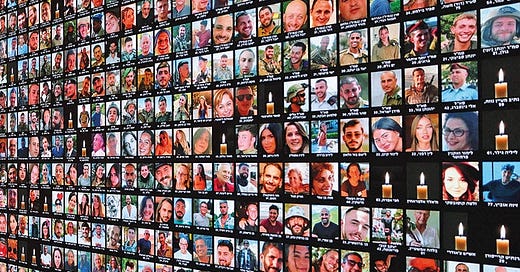



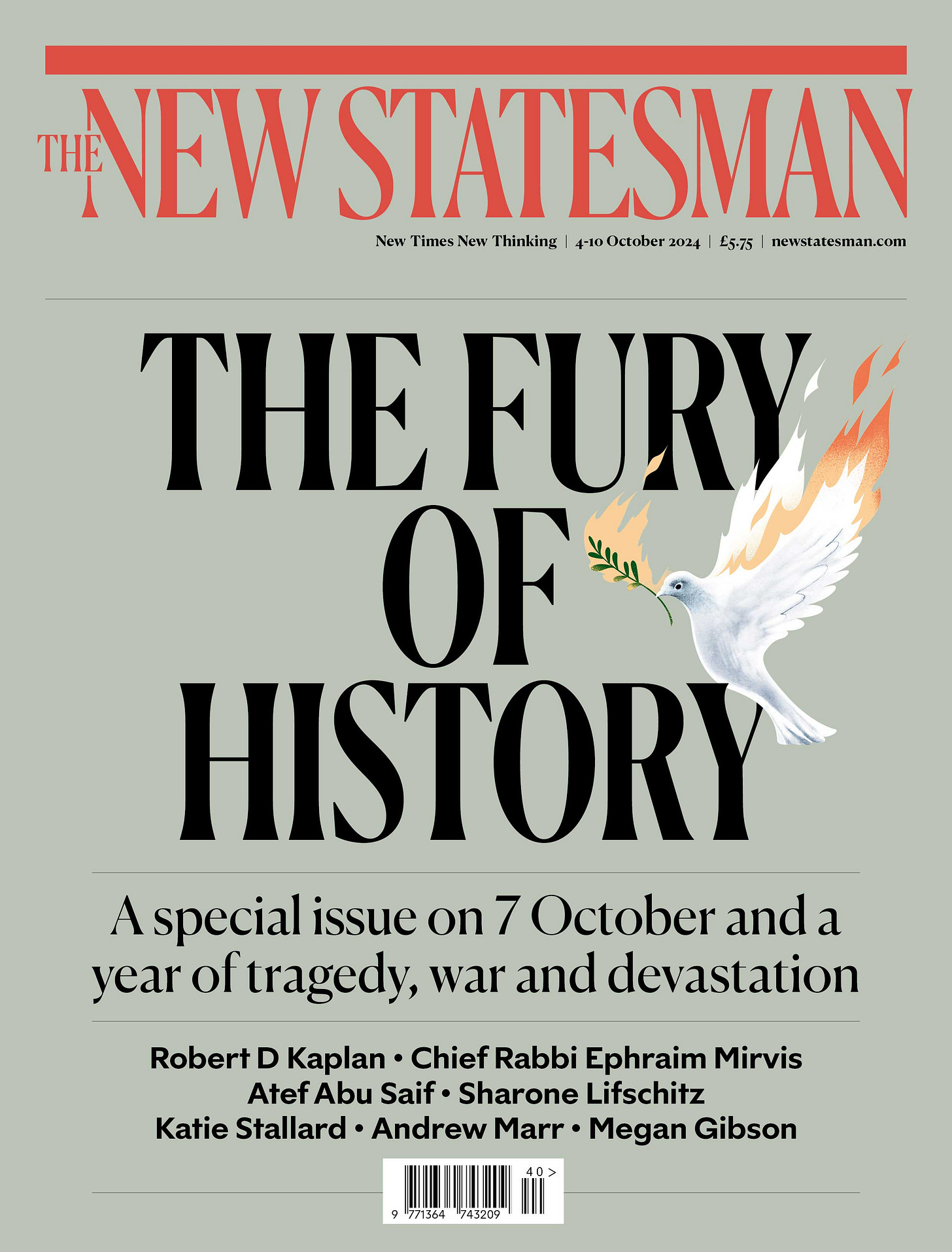



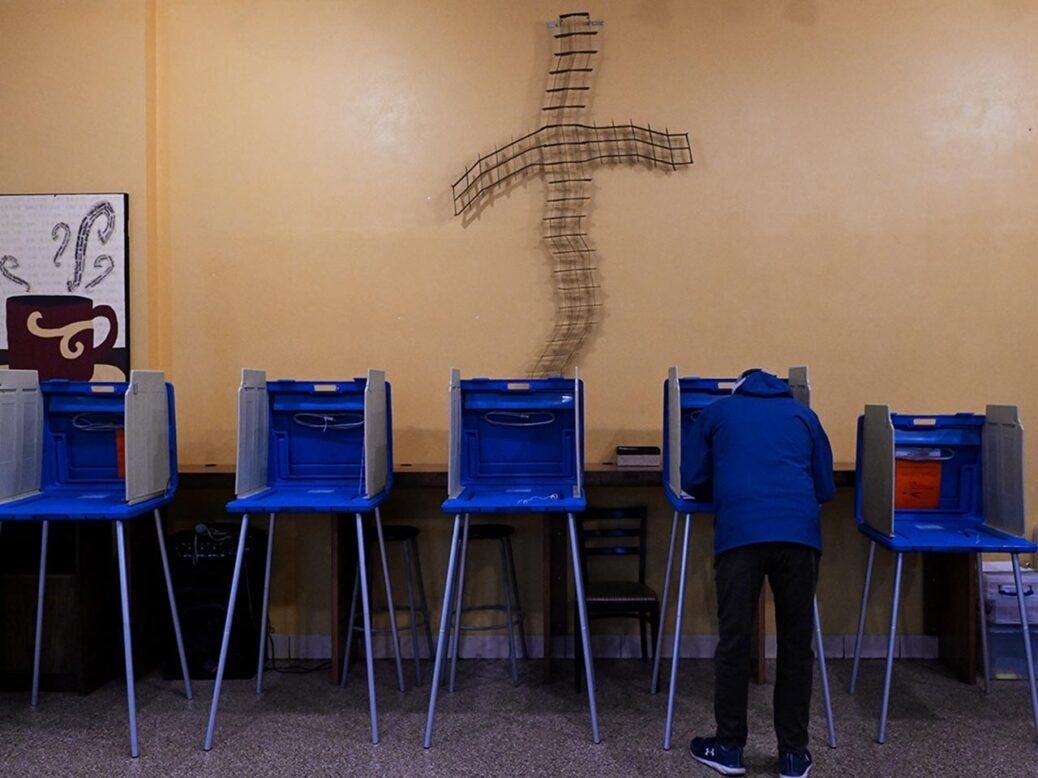
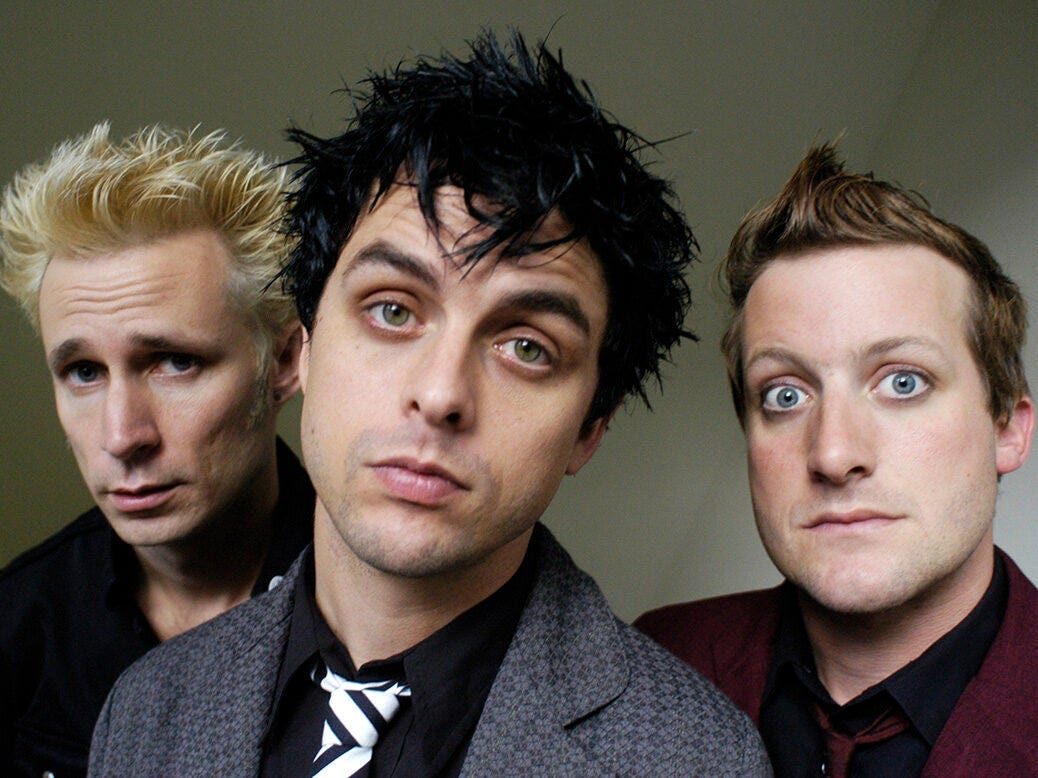
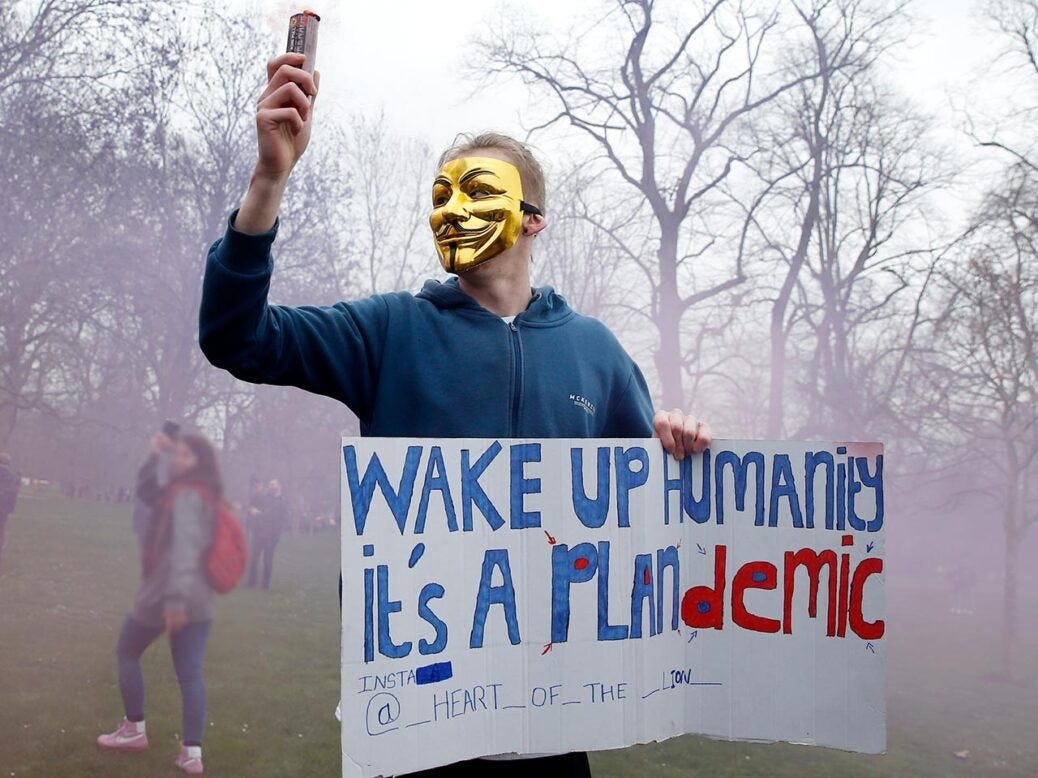

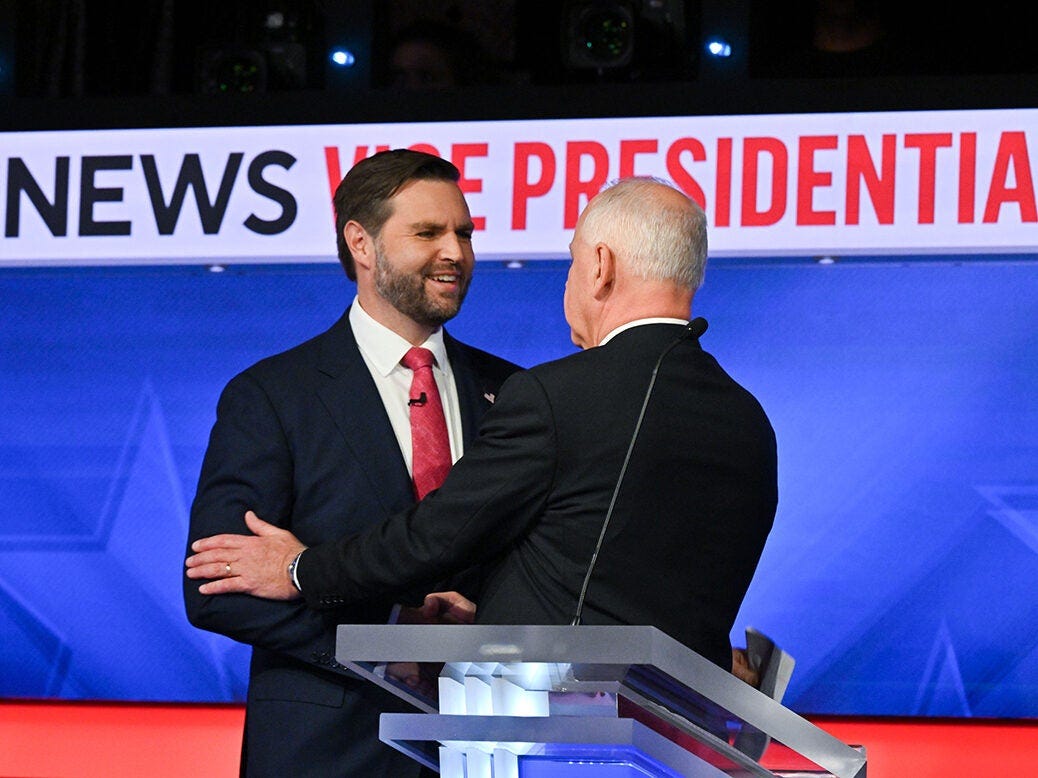
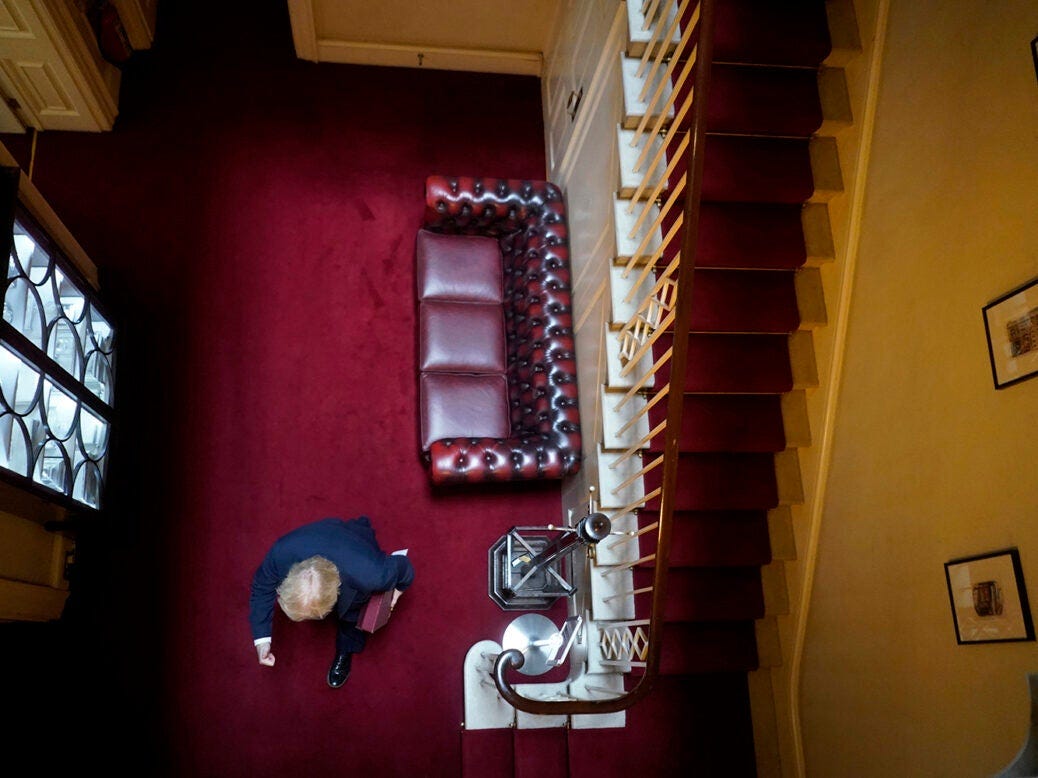

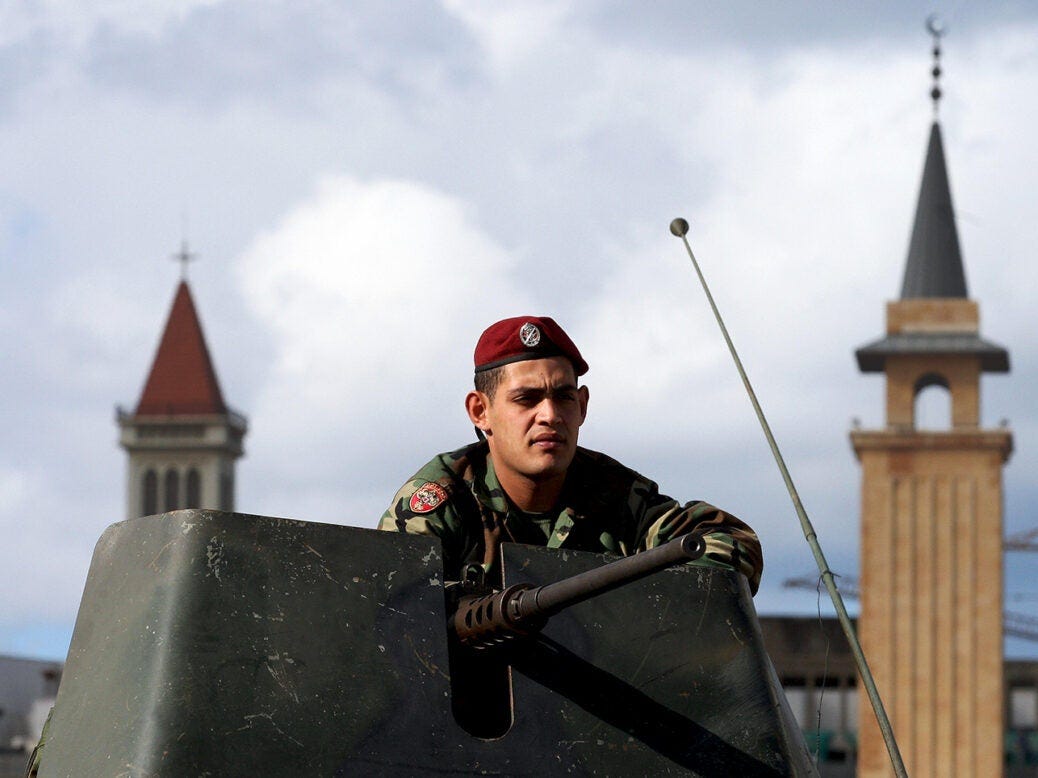

I've found the media coverage on the Israel Palestine situation to be rather biased. This is NOT a war between 2 states. Netanyahu has been found guilty of several war crimes which have been confirmed by the ICC! Bombing refugee camps, schools and hospitals is NOT self-defense!! Thousands of CIVILIANS who have nothing to do with hamas or hizbullah have lost their limbs, family and homes in this relentless bombing. I could confidently say that Netanyahu doesn't care about hamas, hizbullah or the hostages, if they did, they would've accepted the ceasefire agreements that hamas has offered! This is nothing other than genocide... The Israel officials' statements regarding Palestine has made this loud and clear, their intentions are laid so visibly.. Blocking trucks carrying aid into palestine is NOT self defence, putting explosives into canned food is NOT self defence! Also, protesting to end this genocide is NOT an anti-semitic act, what more proof do we need to understand this when we see literal rabbiis and Jewish people potesting along with those people?!
This is insanely disgusting levels of zionist propaganda writing, you should be entirely ashamed of yourselves for continuing to support a genocidal entity. Free Palestine! Liberate the world.